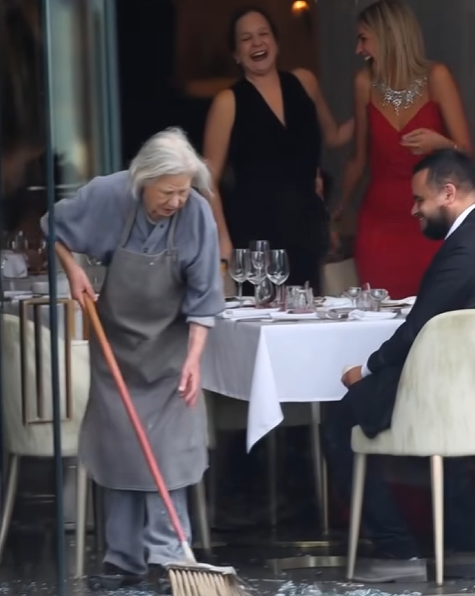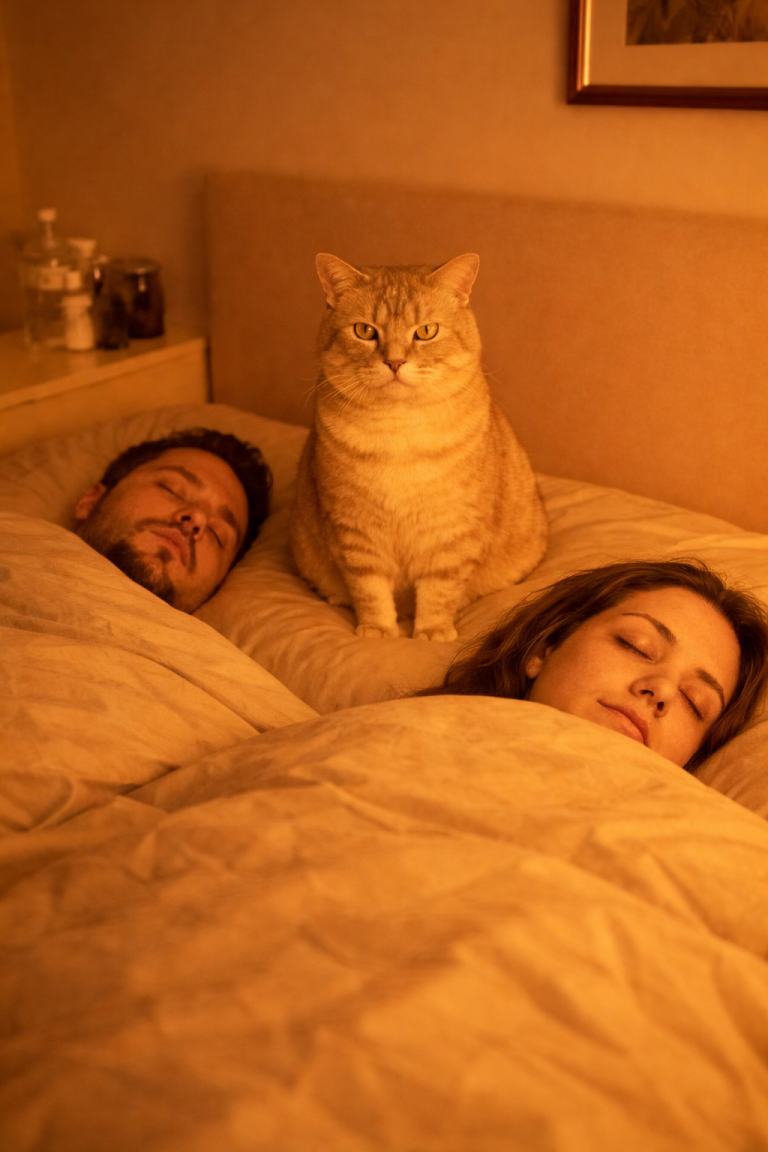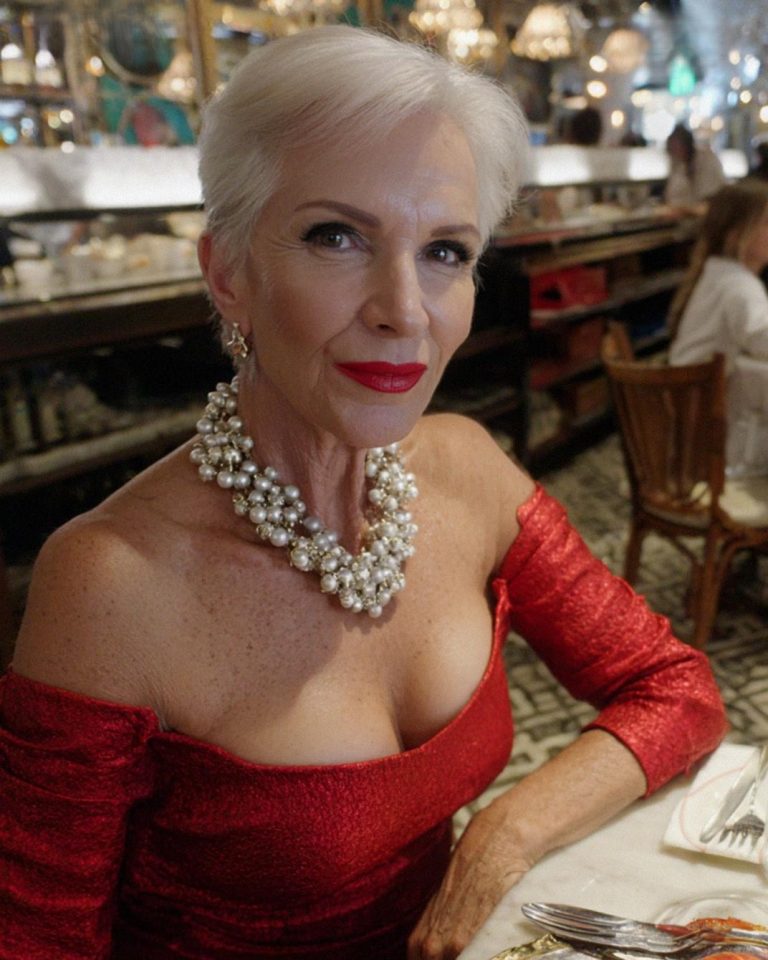
My husband and I were celebrating our 15th wedding anniversary. That evening, he took me to an elegant restaurant with crystal chandeliers, soft jazz, and candlelight.
We were enjoying the evening when two couples sat down at the table next to us — the women in sparkling diamonds and designer dresses, the men in suits with expensive watches gleaming under the light.
They laughed loudly, talking as if they owned the place. Half the restaurant could probably hear them.
Then one of the men, waving his hands dramatically, accidentally knocked over a glass of wine, which shattered on the floor.
A cleaning lady quickly came over — fragile, gray-haired, probably around sixty. She began cleaning and wiping the floor, murmuring apologies as if she were the one who had done something wrong.
That’s when I heard it.
“GOD,” said the blonde woman, wrinkling her nose. “DOESN’T ANYONE YOUNGER WORK HERE??”
Her friend laughed cruelly.
“Look at her shoes — they’re falling apart. WHAT KIND OF RESTAURANT HIRES HOMELESS PEOPLE?!”
The woman froze, her hands trembling as she tried to collect the shards of glass.
The man across from the blonde added, smirking, “MAYBE SHE’S PART OF THE VINTAGE DÉCOR.”
My stomach twisted.
The elderly woman blinked quickly, holding back tears. The room felt suddenly colder, smaller.
Then, beside me, my husband — his eyes dark with anger — suddenly pushed his chair back. The sharp scrape cut through their laughter like a blade.
He stood up — calm, firm — and walked straight to that table.
Everyone in the restaurant fell silent and turned their heads.
“Excuse me,” my husband said, his voice low but steady. “You owe this lady an apology.”
The blonde woman blinked in disbelief. “Excuse me?” she said with a sarcastic laugh. “Do you work here?”
“No,” he replied, “but I work with people. And I know basic human decency when I see it — or when I don’t.”
The table went still.
The cleaning lady froze mid-motion, her rag hanging limp in her hand.
“You broke the glass,” my husband continued, his tone even. “She came to clean your mess. The least you could do is thank her instead of humiliating her in front of a room full of people.”
The other man shifted uncomfortably in his seat. “Hey, we were just joking, buddy—”
My husband cut him off. “If that was a joke, you might want to find a new sense of humor.”
A few people at nearby tables nodded quietly. Someone murmured, “Good for him.”
The blonde flushed red. “Well, we didn’t mean anything by it.”
“Words can wound just as deeply as actions,” my husband said. “Maybe remember that the next time you open your mouth.”
Then he turned to the cleaning lady. His voice softened instantly.
“Ma’am, please don’t worry about them. You’re doing a great job. Thank you for what you do.”
Her eyes glistened with tears. She whispered, “Thank you, sir.”
The manager hurried over, apologizing to everyone, but my husband simply said, “No need. The apology’s already been made where it matters.”
He returned to our table, and the restaurant buzzed again — but this time, with quiet admiration. The rude group sat stiffly, suddenly very small beneath their glitter and shine.
When he sat down, I looked at him — truly looked at him — and my heart swelled with love and pride.
“That,” I whispered, “was the most romantic thing you’ve ever done.”
He smiled softly, still holding my gaze. “Kindness,” he said, “isn’t something you save for anniversaries.”
We clinked our glasses, but neither of us took a sip right away. We just sat there, holding hands across the table, while the old woman finished cleaning and disappeared quietly into the kitchen.
As the evening went on, I noticed something remarkable.
The waiter who brought our dessert leaned in and said, “Your husband… that was incredible. You have no idea how often people treat our staff like that.”
He smiled at us and slipped an extra strawberry onto our plates “on the house.”
When we got up to leave, the cleaning lady appeared again, holding a small napkin folded neatly in half.
She handed it to my husband, whispering, “You reminded me tonight that there are still good people left.”
Inside the napkin was a tiny hand-drawn heart made with a pen — shaky but heartfelt.
As we walked out into the cool night air, I looped my arm through his and said, “You know, after fifteen years, I thought I’d seen every side of you. But tonight… I saw something new.”
He smiled. “You didn’t see something new,” he said. “You just saw what I hope Paige sees one day — that how we treat people says more about us than anything we own.”
We walked down the street, past the glowing restaurant windows, past the noise and laughter. And I realized — love isn’t built on diamonds, or candlelight, or fancy restaurants.
It’s built on moments like that — when someone chooses kindness, even when no one else does.
That night, our anniversary dinner became more than a celebration of our marriage.
It became a reminder — of who he was, who we were together, and the kind of love that doesn’t fade with time, but deepens with every quiet act of decency.
And as we reached the car, I whispered, “Fifteen years — and I’d marry you all over again.”
He squeezed my hand and said, “As long as we keep choosing to be kind, I’d marry you too — every single day.”




1 thought on “What My Husband Did at Our Anniversary Dinner Left the Whole Restaurant Silent”